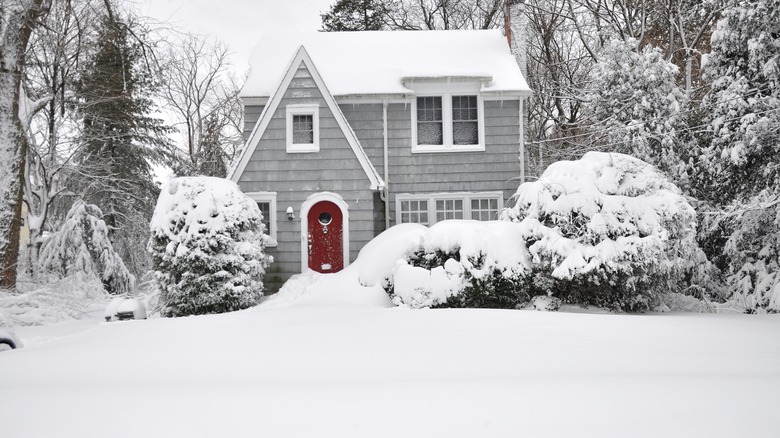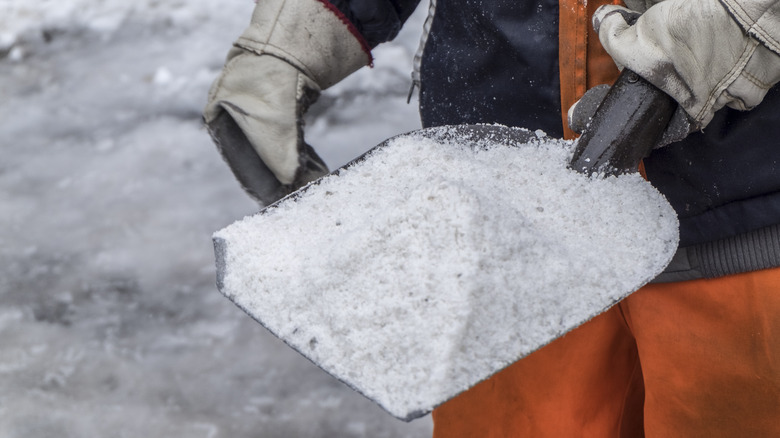The Common Kitchen Ingredient That Doubles As An Effective De-Icer
Freezing temperatures and the resultant snow make for the perfect Hallmark movie-esque atmosphere. You can hunker down in thick woolens, enjoy a toasty cup of hot chocolate (with marshmallows!), and spend some uninterrupted time with your loved ones. However, when the real world beckons, you need to heed the call, pile on layers to keep the cold from seeping into your bones, and grab a shovel to remove the accumulated snow from your driveway. But what do you do when you're not willing to shovel the day away? Simply head to the kitchen and get table salt.
This common kitchen ingredient can double as an effective de-icer in a pinch since it'll break the chemical bonds between water molecules and lower their freezing point, forcing the ice to melt almost immediately. Better yet, this product is incredibly cheap and easy to use. However, use it cautiously and avoid sprinkling it in your garden since exposure to huge quantities of sodium chloride can negatively impact your beloved plant and flowers' growth, causing them to droop.
Use table salt to melt ice
To begin, pour some table salt into a bowl or small container and don your winter gear before stepping out to tackle the ice. Grab a fistful of that granulated sodium chloride and sprinkle it over the frozen surfaces. Remember to distribute the salt evenly and sit back as it reacts with the thin layer of water at the top to break up the molecular constitution of ice. This imbalance will give way to freezing point depression, lowering the water's freezing point from 32 degrees Fahrenheit (0 degrees Celsius) to -5.8 degrees Fahrenheit (-21 degrees Celsius). The following chemical reaction will give off heat as a byproduct and force the solid snow to transform back into a liquid state.
Finely ground table salt works great in a pinch, but its effectiveness reduces once the temperature drops below 15 degrees Fahrenheit (-9.4 degrees Celsius). Moreover, it's best to use this de-icer for small patches or a thin layer of snow, as the resultant water can be quite difficult to sweep away. Further, when used in large concentrations, the end product can be caustic and damage asphalt, concrete, and natural stone surfaces. It's also harmful to your pets and can contaminate any water body it makes its way into. Alternatively, you can prepare a DIY mixture to take care of your snowy driveway.

